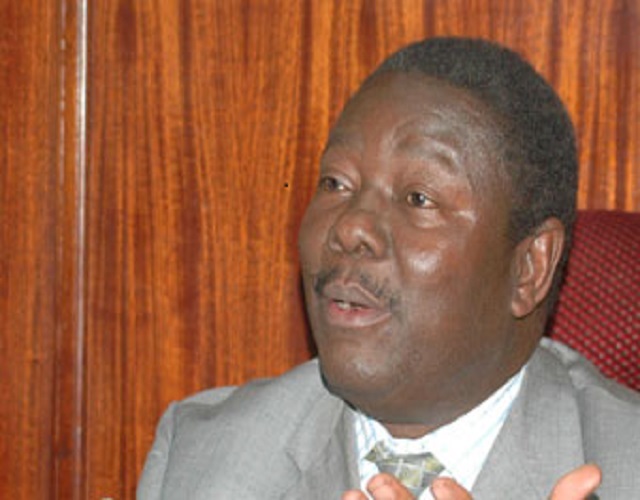
BY HAGGAI MATSIKO
Long-serving Ministry of Energy Permanent Secretary, Fred Kalisa, is considered by many people to be very smart. However, if he was employed in the private sector, he would have been fired for the various failures in his ministry. He was in charge when, despite protests and advice from numerous experts, the government built a second hydro-power dam adjacent to the old Owen Falls Dam. It failed to produce any power. He was in charge when the former Uganda Electricity Board was unbundled into three entities that have failed to work. Recently, Kalisa threw the oil sector into chaos when he let Heritage Oil, one of the oil companies refusing to meet its tax obligation to Uganda, sell its assets and flee. He remains in charge of the national fuel sector that has failed to ensure proper supplies and prices.
Kalisa’s latest project is to invite bids from fuel operators to manage the national fuel reserves at Jinja in spite of an earlier agreement with Tamoil to manage the same facility as part of the Kenya-Uganda petroleum products pipeline.
The ministry of Energy wants a new management entity to refurbish, restock, operate and manage the 30 million litre fuel reserves “for a period prior to commercial operation of the Kenya-Uganda petroleum products for 10 years,’ the bid document reads in part.
The reserves on Mutibwa Road in Jinja now stand dry and empty with no one to manage them. The new manager is expected to stock them with 20 million litres of diesel and 10 litres of petrol, – enough to run the country for two weeks.
A mini-survey by the Independent indicates that almost all fuel operators were invited to bid August when the process started October 8 which is the deadline. The bid document indicates that the procurement method for the bid is Open International Bidding, however, in his usual opaque operations style, Kalisa is keeping a tight lid on any information despite a mandatory right to such information by the public. The Ministry of Energy decision on how to manage the oil reserves is supposed to be approved by parliament but MP Fred Bukeni Gyabi, who is the Chairman of the Parliamentary Committee on Natural Resources, says he is not aware of any such bidding and is hearing it from the press.
‘The last time we had a meeting with them (ministry), we advised them to first renovate and set up a management structure for the reserves but they have been slow and not moving at all,’ he says. Parliament has for a long time insisted that the government be directly involved in managing the reserves but the government says that it does not have the money.
Kalisa’s latest venture is not the first time the ministry is reaching out for bidders to manage the facility. In 2008 President Museveni said the government’s maintenance of the fuel reserves would unnecessarily tie up public monies. He recommended that the private sector manage oil reserves.
The Cabinet accordingly approved setting up a US $26m (Shs 49 billion) project to restock the National Oil Reserve with 30 million litres of fuel. However, the project was fraudulently handed to Ms Ishta Kutesa, daughter of Foreign Affairs Minister Sam Kutesa, and her husband Albert Muganga, with support from Energy Minister Daudi Migereko. The Kutesa Company, Kenlloyd-logistics, is affiliated to Vitol Group that pleaded guilty to paying kickbacks to Iraq officials for oil purchases.
Big fuel dealers Shell, Caltex and Total protested against the award procedure and the Public Procurement and Disposal of Public Assets Authority (PPDA) conceded that it was fraudulently awarded. Consequently the deal was halted.
But as per the 2007 Uganda-Kenya agreement, Tamoil,-a subsidiary of LibyaOil Holdings Limited- claims that it is legally responsible for the Jinja reservoir tanks since they are incorporated in the pipeline system deal.
In its proposal, Tamoil was to double the capacity at Jinja and ensure a ready supply of fuel. Tamoil was to spend slightly over US$1 million to refurbish the old tanks, US$11 million to double the fuel storage capacity, as well establish other utilities such as fire-fighting equipment.
Apart from having the resources, Tamoil had proposed to charge lower storage fees of Shs 12 per litre, against the current Shs14“ Shs18 quoted by dealers such as Shell and Total, which also have tanks in Jinja. Tamoil further suggested that from the Shs 12 charge per litre stored, government was to take Shs 3.
And in its 2008 annual report, the government stated that “the Jinja storage tanks were closed (in May 2008) for rehabilitation and upgrading to be incorporated in (the) Kenya“ Uganda Oil Pipeline project.
In January 2009, the company sent government a draft contract for consideration which took the Ministry up to 10 months to pronounce itself on the contract. But when they finally responded, the government wanted Tamoil to bid.
However, an official at the Libya Company said that they wondered why the ministry wanted them to bid yet managing the reserves was part of the 2007 pipeline agreement. Much as bidding was not much of a problem to Tamoil, the official said, the government conditions for the bid were.
The Ministry’s proposal to Tamoil to reserve 40% of the storage capacity for ‘strategic purposes’ which meant that fuel worth about US$12 million would remain idle, was uneconomical and Tamoil could not accept it. The Independent has also learnt that government wanted Tamoil to charge the oil marketing companies Shs 15 per litre stored of which government would take Shs 10 per litre, and Tamoil only Shs 5. Tamoil also wanted the venture split along a share equity basis, with the company taking 75 percent while government retains 25 percent, so that both revenue and losses are shared. Consequently the government dismissed Tamoil’s proposals and in a February 18, 2010 reply, the government wrote: ‘Your bid was found non-responsive and hence this process was annulled.’
However, some circles in the Energy sector say this does not mean that Tamoil is out of the deal yet since it was part of the 2007 pipeline agreement that is still running.
Unless the government cancels the 2007 agreement which it has not and probably cannot without meeting Tamoil’s costs, managing reserves still remains Tamoil’s deal.
Tamoil earlier on claimed that the entry of a new company in a deal that legally belongs to it would hinder the pipeline construction and force them to seek court intervention. The Question therefore remains how Kalisa and co. are going to reconcile this agreement with Tamoil and the new bid without offending the company.
MP Gyabi wonders how the ministry can award a contract to another bidder when they are already in contract with another company.
Having failed, insiders say that the move to call upon other fuel operators could be an indicator that Tamoil and the energy ministry are yet to agree on the pipeline project which hit a snag earlier this year with the company announcing that, starting May 31, the project would incur a 2 percent increase every month until a final agreement is signed.
The Independent has learnt that ever since the government nullified Tamoil’s bid to manage the reserves, relations between the ministry and the company have soured and could further delay the pipeline deal.
Recently the ministry wrote to Tamoil inquiring about «the state of the pipeline project» and Tamoil replied that the subject «would be discussed with the Joint Coordinating Committee (JCC),» the body that oversees the interests of both Uganda and Kenya in the pipeline deal.
Despite the disagreement with Tamoil, the government has not changed its stand on the matter. It has maintained the same conditions that stalled the Tamoil deal. In the new bid, the operator will not be allowed to trade in more than 60 percent of the storage capacity and of this 20 percent is to be set aside as hospitality storage for third party operators. Government intends to retain 40 percent as strategic reserves that can only be released by the directive of government.
Observers say that Kalisa’s ministry seems to be playing games as its offers are on and off. The Independent has learnt that the ministry’s renewed interest could be due to the pressure that the prevailing fuel scarcity has weighed on its shoulders and could recede again if the scarcity comes to an end.
However, like many other critics, Parliamentary Energy Committee Chairman Gyabi insists that ‘the reserves are so critical; they should be a preserve of government,’ he says, ‘that responsibility cannot be left to private oriented players.’ He blames the current mess on ‘the way the budget was passed, without proper scrutiny.’
Some experts disagree with Gyabi. They say that the government does not have the expertise, motivation and necessary speed to maintain the reserves. ‘They have been there for years, why hasn’t the government managed them,’one of the officials in the fuel industry, ‘they do not have the business potential to do it’
Critics say the failures of Kalisa’s ministry stem from its failure to be transparent, poor planning and poor negotiation skills of its officials.
 The Independent Uganda: You get the Truth we Pay the Price
The Independent Uganda: You get the Truth we Pay the Price


